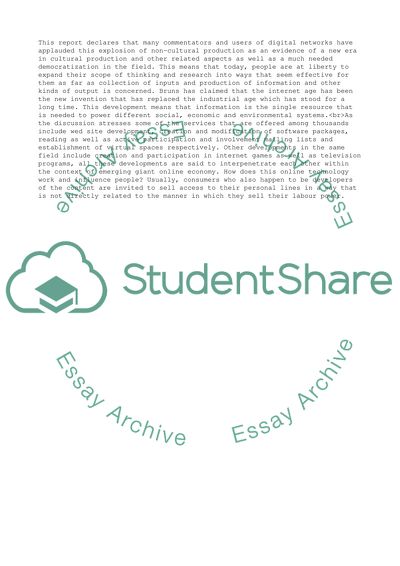Cite this document
(“Managment and Digital Labour Networks Essay Example | Topics and Well Written Essays - 2750 words”, n.d.)
Managment and Digital Labour Networks Essay Example | Topics and Well Written Essays - 2750 words. Retrieved from https://studentshare.org/management/1642589-managment-and-digital-labour-networks
Managment and Digital Labour Networks Essay Example | Topics and Well Written Essays - 2750 words. Retrieved from https://studentshare.org/management/1642589-managment-and-digital-labour-networks
(Managment and Digital Labour Networks Essay Example | Topics and Well Written Essays - 2750 Words)
Managment and Digital Labour Networks Essay Example | Topics and Well Written Essays - 2750 Words. https://studentshare.org/management/1642589-managment-and-digital-labour-networks.
Managment and Digital Labour Networks Essay Example | Topics and Well Written Essays - 2750 Words. https://studentshare.org/management/1642589-managment-and-digital-labour-networks.
“Managment and Digital Labour Networks Essay Example | Topics and Well Written Essays - 2750 Words”, n.d. https://studentshare.org/management/1642589-managment-and-digital-labour-networks.


